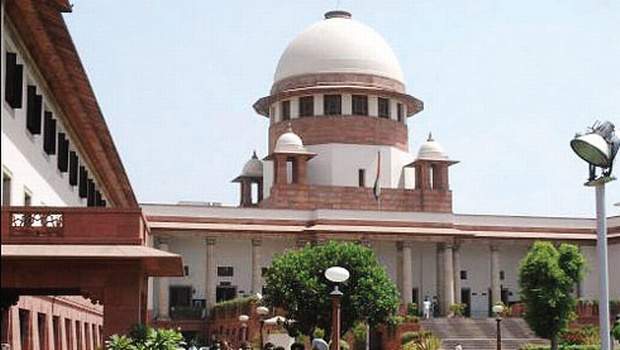landmark judgement: Individual privacy is a fundamental right Says Supreme Court
 NEW DELHI : In a landmark judgement that will impact the lives of 134 crore Indians and may give a massive jolt to government’s Aadhaar push, a nine-judge Supreme Court Constitutional bench today said Right to Privacy is a Fundamental right.
NEW DELHI : In a landmark judgement that will impact the lives of 134 crore Indians and may give a massive jolt to government’s Aadhaar push, a nine-judge Supreme Court Constitutional bench today said Right to Privacy is a Fundamental right.A decision on Aadhaar will be taken by a separate and smaller bench of the top court. However, today’s judgement can significantly weaken Centre’s position on Aadhaar Cards, which collects fingerprints and iris scan. Citizens can now refuse to give their biometric authentication, said an SC advocate.
1962: Kharak Singh vs State of Uttar Pradesh
1975: Govind vs State Of Madhya Pradesh
In this case, petitioner Govind had argued that for his right to protect personal intimacies at home. The top court confirmed that the right to privacy is a fundamental right, but not absolute.
1977-78: Maneka Gandhi vs Union of India
Maneka Gandhi, the daughter-in-law of former Prime Minister Indira Gandhi, was issued a passport in 1976. Following the incidents after the Emergency in India, she received a letter from Government of India to impound her passport “in public interest” under Section 10(3)(c) of the Passports Act. Responding to a writ petition filed by Gandhi, the Supreme Court held that right to travel abroad fell falls under the right to personal liberty. A landmark case, the top court ruling became a turning point in the interpretation of the right to life and personal liberty enshrined in Article 21 of the Constitution.
1995: R Rajagopal vs Union of India
Shankar, imprisoned for six murders, wanted to publish his story. However, authorities cancelled the publication of his biography. Shankar challenged this in court. The top court held that he has a constitutional right to publish and it falls under the right to personal liberty. It further recognized that the right to privacy can be both an actionable claim and also a fundamental right.
2004: R. Sridhar vs R. Sukanya And Ors.
R Sridhar, estranged husband of Indian actress Sukanya, moved to the Supreme Court over divorce and marital dispute. US-based Sridhar, in his petition, contended that Indian courts have no jurisdiction to hear their divorce suit since their marriage was performed in the United States under the Foreign Marriage Act, 1969.
Sukanya filed a petition requesting that the media be restrained from publishing details of the case and her privacy be respected. The Madras High Court, rejecting trial court’s judgement, said that all court proceedings shall be held in-camera but restrained the media from reporting on the case. Judgement ruled in favour of Right to Privacy over right to publish news.
2006: Naz Foundation vs Government of Delhi
The Supreme Court condemned Section 377 of the Indian Penal Code which discriminate against a section of individuals on the basis of sexual orientation. However, the court did not strike down the provision and said that it is the Parliament’s job to change it.
2014: UIDAI & Anr vs CBI
When the Central Bureau of Investigation sought the access to Unique Identification Authority of India’s database for investigating a criminal offence, the SC refused, stating that the UIDAI can not transfer any biometrics without the consent of the person.
2015: Justice K.S. Puttuswamy (Retd.) & Anr. vs Union of India
In October, the top court set up a constitutional bench to examine if Aadhaar is an invasion of citizen’s privacy
2016: WhatsApp case (Karmanya Singh Sareen & Anr v Union of India and Ors) The SC while hearing a challenge to the Delhi High Court’s September 23, 2016 order by which it allowed WhatsApp to roll out its new privacy policy, stopped it from sharing the data of its users collected up to September 25, 2016, with Facebook or any other related company.(with Agency Inputs).

